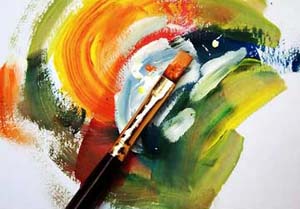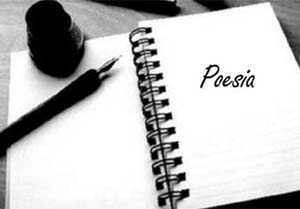 |
|
 |
|
| Visite: 2791 | Gradito: |
Leggi anche appunti:Giosuč carducci - il valore della storia in 'dinnanzi alle terme di caracalla', dinnanzi alle terme di caracallaGiosuč Carducci Carducci, Giosue (Valdicastello, Lucca 1835 - Bologna 1907). Riassunto dei canti XXI e XXIIRiassunto dei canti XXI e XXII Dante e Virgilio, giunti sulla sommitą del Pablo Neruda - BiografiaPablo Neruda - Biografia Hacer una breve y consisa biografia de Pablo Neruda, |
 |
 |
Virginia Woolf: a life between Madness and Genius
"A woman must have money and a room of her own if she is to write fiction.'
Talking about Geniality and Madness, there are many psychological studies that confirm that actually exist a connection between the two things.
Studies taken by Doctor Nancy Coover Andreasen on members of the creative writing workshop at the University of Iowa (1987), show us that in families of artists, all relatives are provided with creativity and it is high possible to suffer of humor disturbs.
Andreasen analyzed 30 creative writers and their relatives during 15 years and he noticed that the writers had a high frequency of mental disturbs, most of them emotional disturbs, and an inclination to bipolarity. Moreover, he noticed than the writers had a very high IQ confirming in this way that creativity and mental ability are linked. Most of the writers used to create when their humor was normal, calm, and not while they were depressed or excited.
Also Kay Jamison took studies on this theme: she analyzed 47 important English artists and writers. 87% of them were males, about 53 years. The 38% had been treated for emotional problems. The poets were in top: half of them had had problems of depression, as the two thirds of the dramaturges. Of the whole group, a third of the subjects had humoral oscillations.
Arnold M. Ludwig, adjunct Professor of Psychiatry and Human Behaviour at Brown University (2006-present), published the biography of 1005 famous artists, writers and other professionals of the 20th century. He noticed that writers and artists had a high frequency of suicide tentative, moodiness, alcohol and drugs addiction. Doctor Ludwig found out that poets were the category with most high number of suicides and hospitalisations.
All this fits well on Virginia Woolf and her relatives. In fact she belonged to a family of artists: her father was a writer, her sister Vanessa a painter. Moreover, one of her youngest brother was one of the first psychoanalysts. Virginia suffered from emotional disturbs, both from mother and father. She used to have long maniacal attacks and she had dangerous breakdowns between 1912 and 1915.
After this period, Virginia wrote some of her greatest novels, like Mrs. Dalloway, in which her madness becomes Septimius' state of mind. Actually she was not mad, she never was, but she had psychological problems because of the sexual aggressions that her brothers in law did on her and because of her mother's death. She tried to pass over this episode writing To the Lighthouse, where she rebuilt her childhood and she took inspiration from her mother to create the character of Mrs. Ramsey.
After completing her last novel, Between the Acts (posthumously published), she fell victim of another depression crisis. On 28 March 1941 she commits suicide drawing her self into the River Ouse, with her overcoat's pockets full of stones. Her body wasn't found until the 18th of April.
Before dying she wrote to her husband:
"I feel certain that I am going mad again. I feel we can't go through another of those terrible times. And I shan't recover this time. I begin to hear voices, and I can't concentrate. So I am doing what seems the best thing to do. You have given me the greatest possible happiness. You have been in every way all that anyone could be. I don't think two people could have been happier 'til this terrible disease came. I can't fight any longer. I know that I am spoiling your life, that without me you could work. And you will I know. You see I can't even write this properly. I can't read. What I want to say is I owe all the happiness of my life to you. You have been entirely patient with me and incredibly good. I want to say that - everybody knows it. If anybody could have saved me it would have been you. Everything has gone from me but the certainty of your goodness. I can't go on spoiling your life any longer. I don't think two people could have been happier than we have been. V."
In this way ends the life of one of the greatest novelists of the 20th century, a woman who always wanted her freedom, even when her psychological condition did not allowed her, an artist who spent her life between reality and a world of her own and never let her emotional disturbs to stop the Genius that lived in her.
 |
| Appunti su: |
|
| Appunti Pittura disegno |  |
| Tesine Poesia |  |
| Lezioni Grammatica |  |